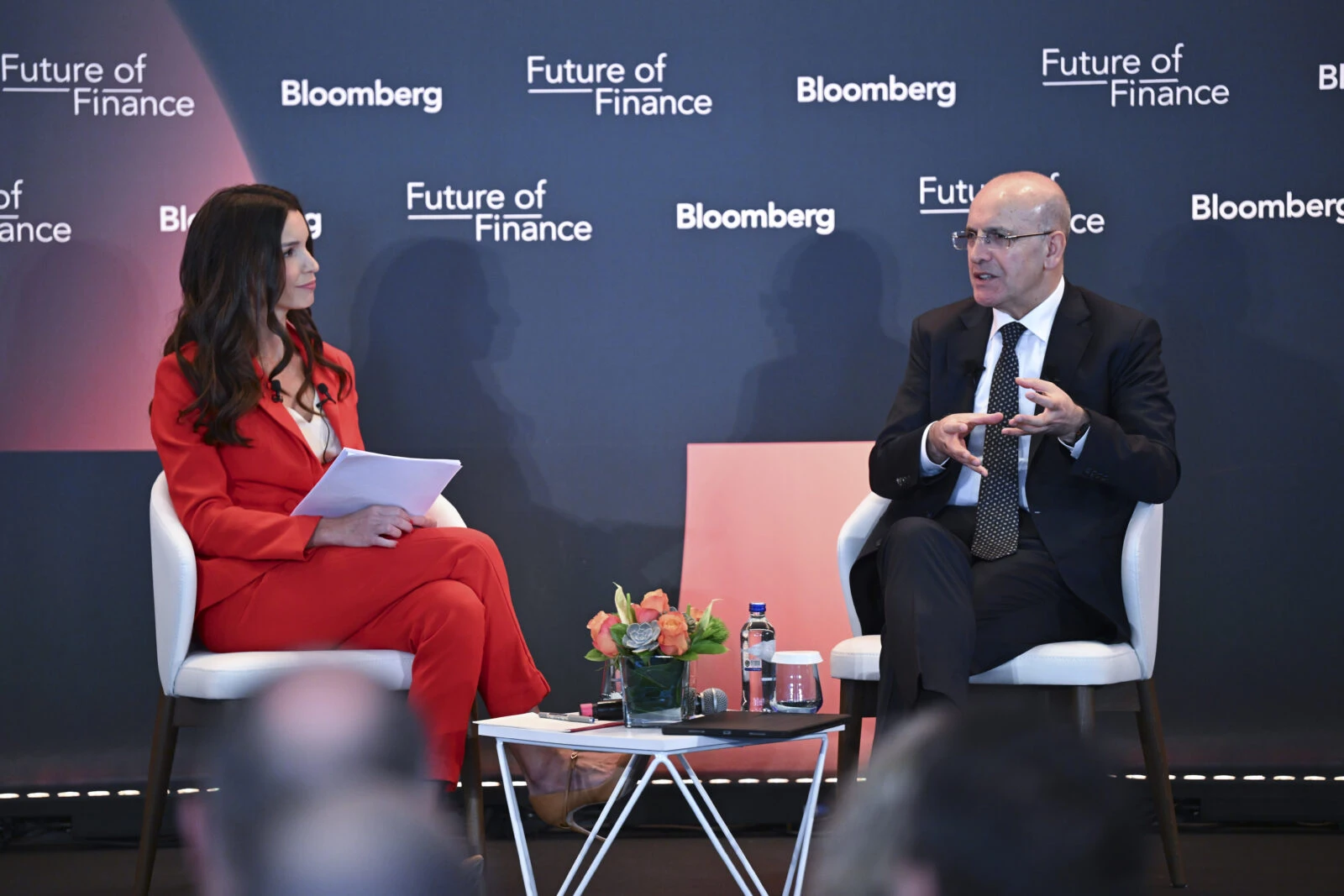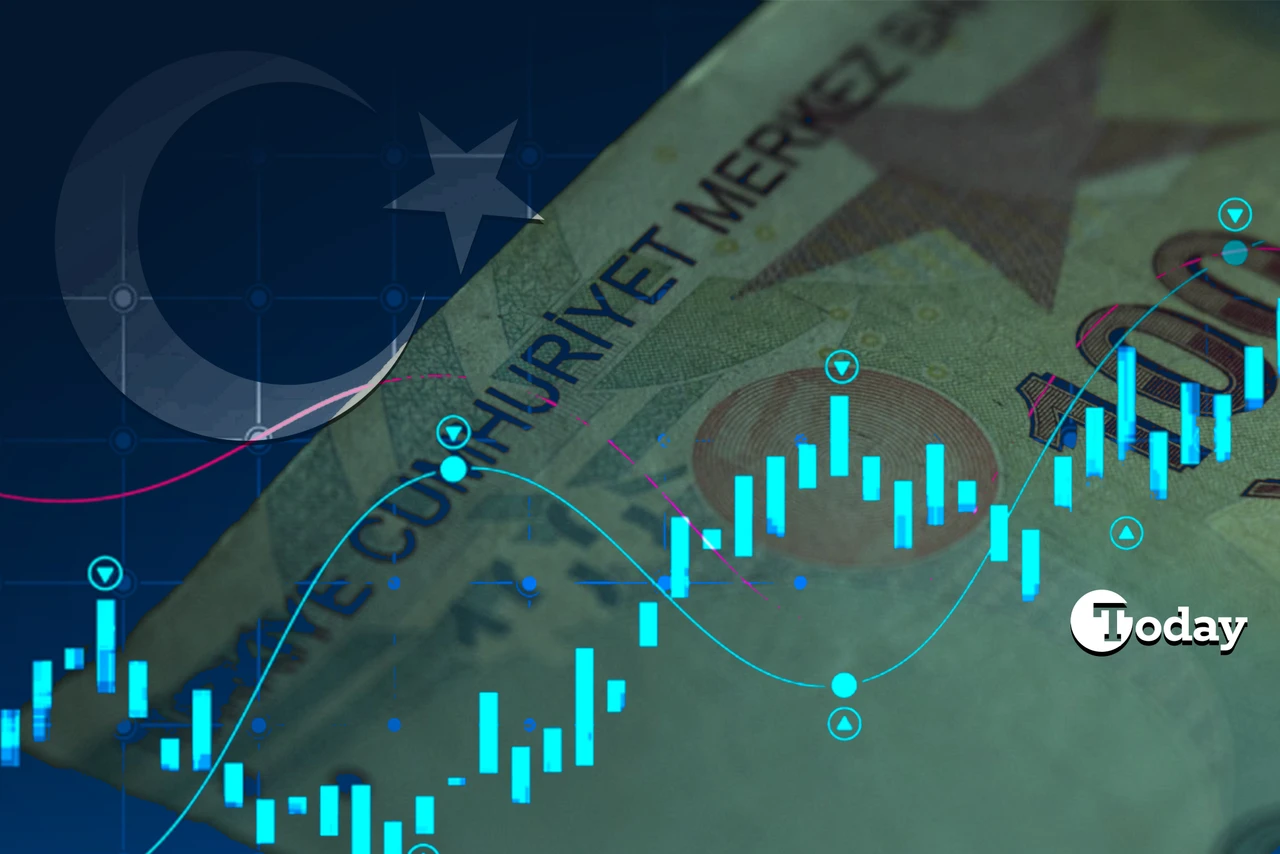Turkish Finance Minister Simsek advises investors to buy long-term Turkish bonds
 Turkish Treasury and Finance Minister Mehmet Simsek (right) answers questions at the "Future of Finance" event organized by Bloomberg in Istanbul, Türkiye, on Feb. 4, 2025. (AA Photo)
Turkish Treasury and Finance Minister Mehmet Simsek (right) answers questions at the "Future of Finance" event organized by Bloomberg in Istanbul, Türkiye, on Feb. 4, 2025. (AA Photo)
Turkish Treasury and Finance Minister Mehmet Simsek suggested financial investors to extend their purchases of Türkiye’s long-term bonds, emphasizing the country’s growing geopolitical and geostrategic significance.
“If we exclude last year and this year, Türkiye’s real gross domestic product (GDP) growth rate has averaged around 5.5% over the past 25 years—a strong performance compared to similar economies. We are an open economy seeking free trade agreements (FTAs). All these factors indicate that Türkiye can be a favorable investment destination,” Simsek said.
A long-term government bond is a debt security issued by a government with a maturity period typically exceeding 10 years, often up to 30 years or more. These bonds are considered low-risk investments because they are backed by the issuing government’s ability to raise revenue through taxation or issue currency.
Speaking at Bloomberg’s “Future of Finance” event in Istanbul on Tuesday, Simsek responded to questions from Bloomberg TV host Joumanna Bercetche.

Discussing the outcomes of the disinflation program implemented over the past 18 months, Simsek said that Türkiye has been taking steps to achieve single-digit inflation and ensure sustainable high growth. He recalled that in the first decade of the 2000s, Türkiye successfully reduced inflation while doubling its growth rate. “We want to repeat that success, but this journey requires us to rebalance growth,” he said.
“However, this growth was entirely driven by exceptionally strong domestic demand, which led to a significant current account deficit and inflationary pressures. What we have done is balance growth. As a result, our growth rate, temporarily, is slightly lower than historical standards,” Simsek stressed, recalling that economic growth was around 5% when the disinflation program began in mid-2023.
‘Better prospects for Türkiye’
Simsek described the disinflation program as part of a comprehensive transformation plan, stating, “There are better prospects ahead for both Türkiye and the Turkish lira.”
Highlighting the long-term benefits of disinflation policies, he emphasized that they contribute to sustainable and robust economic growth. He noted that these measures lead to lower yields and risk premiums, making Türkiye an attractive destination for investors.
While acknowledging past challenges, he underscored the importance of looking ahead rather than dwelling on previous difficulties. He affirmed that the ongoing program is functioning effectively, progressing as planned, and yielding positive results.
“Türkiye is a large market. As of last year, the country’s GDP reached $1.3 trillion. We have a population of 85 million, or nearly 90 million when including Syrian refugees. Additionally, we have strong infrastructure. Anyone investing in this country can rely on solid infrastructure. Our human capital is also one of our greatest strengths,” Simsek noted.



